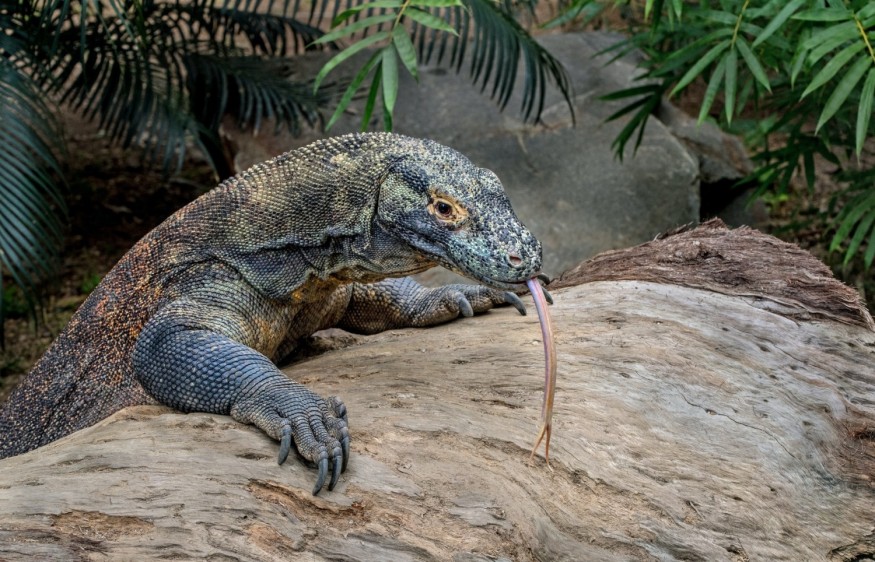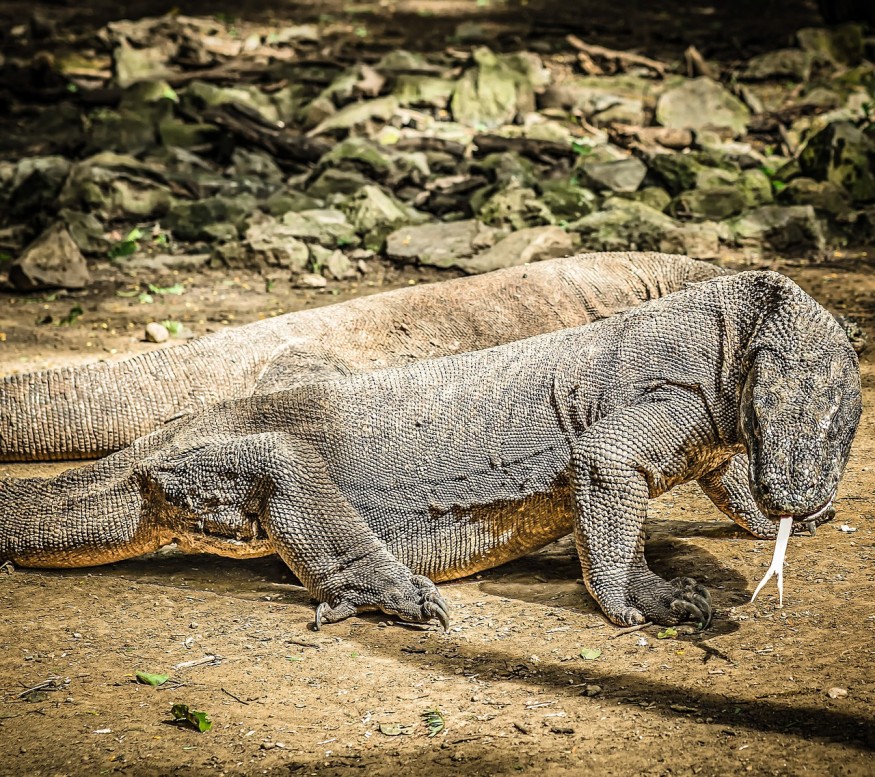Due to a sharp increase in the cost of Komodo dragon tickets, Indonesian tourist employees have gone on strike.
The cost to visit the major islands in Komodo National Park has increased from 200,000 rupiahs ($13) to 3,750,000 rupiahs ($250).

The government aims to control the number of tourists and save the threatened lizards from excessive human contact, according to a report by the BBC.
However, locals claimed that it will entirely frighten off tourists, causing a decline in their revenue.
According to the Reuters news agency, approximately 3,300 of the unique Komodo dragons live in Indonesia. The biggest lizard in the world may reach a length of three meters and has razor-sharp fangs and a deadly bite (10 feet).
Going on Strike
Busloads of visitors from all over the world go to Komodo National Park to observe the endangered species in person thanks to its distinctive, dinosaur-like look, with 220,000 doing so in 2019.
The local government expects this number to drop by raising the ticket charges, and the islands will again belong to their rightful owners: the dragons.
However, 700 local employees that depend on tourism, in response, are going on strike till the end of August.
A nearby tour company, Servianus Setiawan, said that the proposals endangered villagers who relied on tourism for their livelihood.
"Please come up with a reasonable amount so we can maintain Komodo dragons and so people whose livelihood depends on tourism can exist," he said to the AFP news agency. "We support Komodo conservation."
Viktor Laiskodat, the local governor, told AFP that although information about the fee rise might have been better disseminated, the 18-fold price increase will nonetheless go through.
Protecting the Dragons

To safeguard the endangered dragon species, local officials have made a variety of measures to restrict the number of visitors to the island.
Authorities had formerly intended to forbid visitors from entering the park, but in 2019 they floated proposals to restrict access to those who had paid for an expensive membership program.
500 islands make up the East Nusa Tenggara province of Indonesia, where the Komodo National Park is located.
Given that it is one of the poorest areas in the Indonesian archipelago, the local economy depends heavily on tourism.
Largest Lizard Today
Being the largest reptiles on Earth, Komodo dragons may grow to be 10 feet long and weigh more than 300 pounds, as per the National Geographic.
They feature bent legs, large, flat skulls with rounded snouts, scaly skin, and enormous, powerful tails.
Komodo dragons have survived in the hostile environment of Indonesia's Lesser Sunda Islands for millions of years.
They may be found across the islands, although they favor the tropical woods.
These active reptiles may run up to seven kilometers each day, yet they prefer to stay close to home and rarely leave the valleys where they were born.
Threats to Survival
The Komodo dragon has faced threats from humans as well.
The habitat of the Komodo dragon has been burnt to make room for other purposes, and this reptile's prey is the target of poachers.
Additionally, visitors dish out food and interfere with the dragons' mating rituals, which prompted the Indonesian government to contemplate temporarily closing Komodo Island, one of several locations where they may be found, to tourists.
However, visitors are also crucial to conservation efforts since their economic boost gives people an incentive to support the Komodo dragon's preservation.
Conservation Efforts
To save the Komodo dragon and its environment, Indonesia created Komodo National Park in 1980.
The Timor deer and orange-footed scrub owl live in this 700-square-mile sanctuary with a diverse marine ecosystem that supports whales, dolphins, sea turtles, sharks, corals, sponges, manta rays, and more than a thousand kinds of fish.
Komodo National Park, now a UNESCO World Heritage site, has placed patrols to deter poaching.
Additionally, it collaborates with neighborhood groups to raise awareness of the species and the value of its protection.
Related Article : Rising Sea Levels Threaten Habitat of Komodo Dragons, Turning Them to Endangered Species
For more wildlife news, don't forget to follow Nature World News!
© 2025 NatureWorldNews.com All rights reserved. Do not reproduce without permission.





